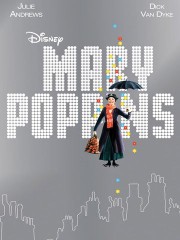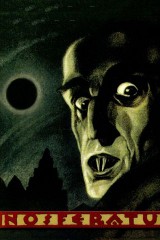
(Photo by Gareth Cattermole/Getty Images for BFI)
Partnered with the likes of Hereditary, Green Room, It Comes At Night, and The Killing of A Sacred Deer, Robert Eggers’ directorial debut The Witch helped create that unmistakable brand of A24 horror. The Witch hit those “elevated horror” notes: An original, slow-burn plot that expects film literacy and attention from viewer, which typically flies in the face of the average horror watcher expecting jump scares and constant loud noises.
Eggers’ second movie, The Lighthouse, is set on a wind-battered and isolated New England island at the turn of the 20th century, practically a jump into modern times compared to The Witch‘s 1630 setting. Robert Pattinson and Willem Dafoe star as two “wickies” assigned to maintain the remote lighthouse, setting the stage for a blackly comic ascent into madness involving farts and angry monologues, questionable plates of food, menacing birds, and a light at the top of the stairs that one man refuses to let the other look at. It’s like Step Brothers if it were written by Algernon Blackwood.
After a successful second-week expansion that saw the movie crack the top 10 box office without a wide release, we talked to Eggers to congratulate him on another Certified Fresh effort, and to get his Five Favorite Films.

I’d like to say that the television version that’s longer is better than the version that was in movie theaters. Bergman’s my favorite filmmaker, if I had to choose. It’s very much a culmination of most of the themes and motifs of his career that appears as a physical personification in the very beginning of the film, similar kinds of ghosts that Bergman explored in the past. He has his love for the theater and puppetry and there’s moments of hope and joy, but it also just reminds you that humans have certain demons that they can’t ever escape. It’s really rich and it touches on so many things about what it is to be human that it’s really quite remarkable. And as with every Bergman movie, there’s not a moment of bad performance to be found.
But I think that the first episode, if you were to watch the TV version, is just Christmas with a family. A long episode of getting to know a family at Christmas. And I was talking with [Home Alone director] Chris Columbus about Christmas in movies and he was explaining how it’s just a time of heightened emotions for everyone. So that’s a really clever way to learn about this family and all of their dynamics super deeply, by beginning at Christmas. And the first time you watch it, you’re kind of like, “Where is the story? What is this? This is just Christmas.” And then the next episode, the plot begins but you’ve gotten to know this family incredibly closely and so then you’re just so invested with them through the rest of the film.
Also, like The Lighthouse, it has some fart jokes.

Another movie that takes place in the Edwardian era, but in the country where Edward was actually reigning. It was an important movie for me as a kid and it continued to be something that I revisited again because it’s just good. Good storytelling, quite beautiful. You’ve got to love the matte paintings of the London rooftops. You’ve got to love a movie where a witch is your nanny. Obviously, no challenge to Dick van Dyke’s Australian Cockney accent, but his performance in that movie is really incredible. He is such a good physical comedian and when they’re in the chalk painting — which is also just lovely, the live action mix and the animation — he often has the same dance choreography as Julie Andrews. And he interprets it incredibly differently. It’s not that he can’t do them, it’s that he’s interpreting them in a different way, for humor, with his body type and so cleverly.
It’s a movie where kids have power. They understand some things that their Edwardian dad doesn’t. And we use a Mary Poppins-esque weathervane shot in The Lighthouse. And then also, as much as it is a very, very satisfying narrative, the movie’s not without mystery. What is Mary Poppins’ backstory? What is her relationship with Bert? She creeps me out. Like when her reflection in the mirror keeps singing after her. The way she’s a little bit austere with the children and then the next minute she’s super cuddly, it is a little creepy. And then it just isn’t her, but when the kids get lost in East London, and there’s the dogs barking, and the old beggar woman who’s like, “Come here, children” or whatever. That was incredibly terrifying as a child.
I feel like talking about Mary Poppins all day. Okay. Andrei Rublev, spelled ‘Rublev’ but pronounced ‘Rublov’. It’s because we don’t use the Cyrillic alphabet. I really do love Tarkovsky’s Mirror as well. But the last act, or the last movement of Andrei Rublev is probably just the best thing in cinema history. That bell casting sequence is just so powerful. In some ways, it’s kind of the same thing that Fanny and Alexander does where you’re not even sure who Andrei Rublev is for quite a while the first time you watch the movie, and this is the episode that makes sense together and works together [in a film that doesn’t have] this super linear, aggressive plot. And then the last movement is very linear, that is incredibly cathartic once you’ve been marinated in this world. It really knocks you out. But in general, the movie is so well-staged and beautiful and stunning and inspiring. It’s completely mind-blowing.

I’ve seen the Herzog one a good many times too, but the Murnau film… Murnau is neck to neck with Bergman as my favorite director. He’s responsible for some of the best images in cinema of all time, from Nosferatu to Faust to Sunset. His work was so influential that filmmakers generations later can be referencing Murnau without knowing it. But Nosferatu is an interesting movie. It was produced by Albin Grau, an occultist who started an independent film studio to make occult-themed movies. Nosferatu was his first endeavor. And he hired the screenwriter, and he hired Murnau, and he was the production designer and did a lot of concept art. Very much part of the authorship of this film. And Max Schreck, as much as he is a folk vampire and a reinterpretation of Stoker’s literary gothic vampire, he’s also influenced by Albin Grau’s early 20th-century occultist views on vampirism. But in many ways — there’s horror movies before it, obviously — Nosferatu invents horror movies. The editing of the parallel story together in some ways invents cinema.
I don’t always love Parajanov’s roaming camera in this movie, but he settled down from Color of Pomegranates onwards. Parajanov’s love for the folk culture is quite infectious. The way that he loves everything on screen, I relate. And the winter mummers are so mysterious. He makes this Hutsul culture come alive and it’s so exotic. Now I know a lot about Carpathian culture and Slavic folklore so the movie doesn’t have a lot of mystery to me anymore. But the first time I saw these images that I couldn’t understand, I was completely conquered because he so clearly understood them [and] they were infused with some kind of meaning that just felt essential to me.
The Lighthouse is currently playing in select theaters.